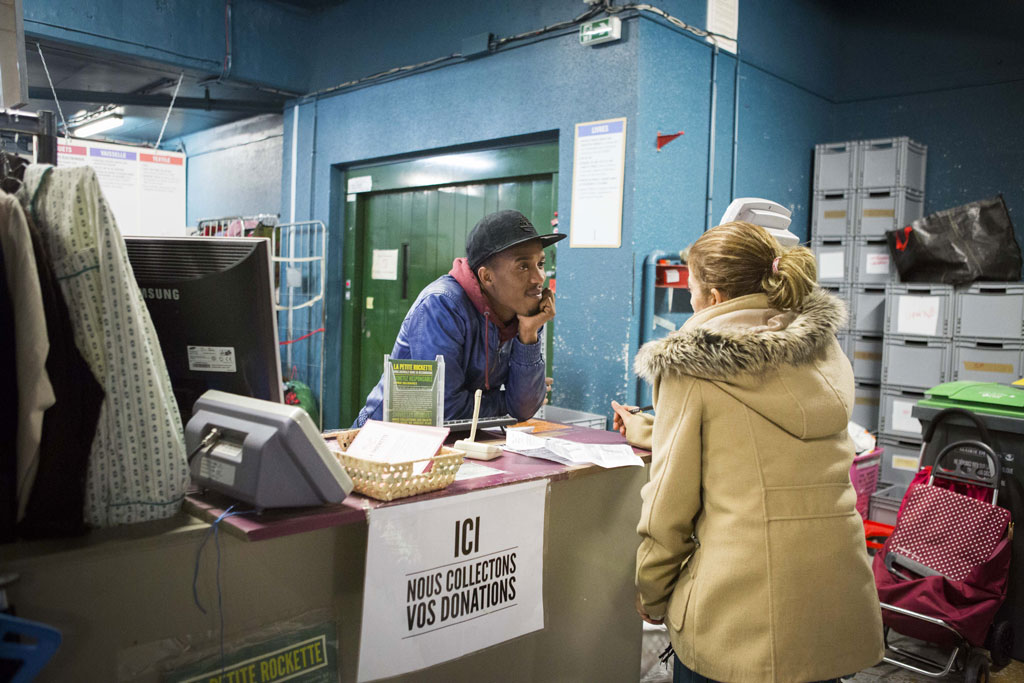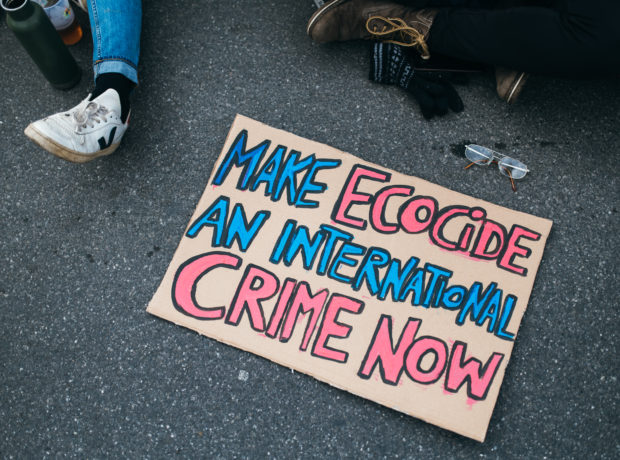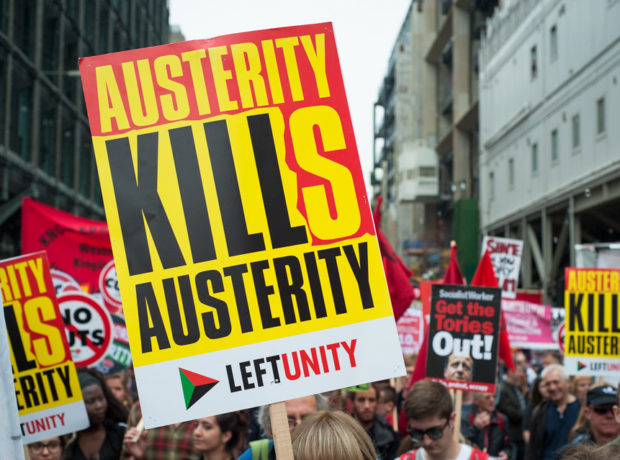As funding cuts in France leave 200,000 people facing unemployment, Olivia Konotey-Ahulu feels the fear at a community centre in Paris.
The reverent hush of those in the presence of bargains falls when La Petite Rockette in Paris opens its doors one Saturday afternoon.
The former squat, transformed into a multi-purpose association (the French equivalent of a non-profit) community centre several years ago, is crammed with household essentials, all sold for next-to-nothing.
Children interrupt the quiet by picking from the baskets of free toys and dropping them on the floor, whilst teenage girls rummage through piles of underwear sold for 50 centimes.
A queue forms to drop off donations in front of a man who is scowling at his computer.
On his desk is a sign pasted on all the work stations, reading: “Without government help, my job would not exist.”
Eddie Hurand, like 14 out of 20 employees here, is on an aided contract (contrat aidé). This puts him in a precarious position.
Many of these short-term, government-subsidised contracts, which are mostly in the not-for-profit sector, will be cut in the coming year following an announcement by Prime Minister Edouard Philippe last summer.
These cuts will leave over 200,000 people without jobs by the end of 2018.
The changes have seen French civil society start a scramble for alternative sources of funding as the ground beneath it shifts.
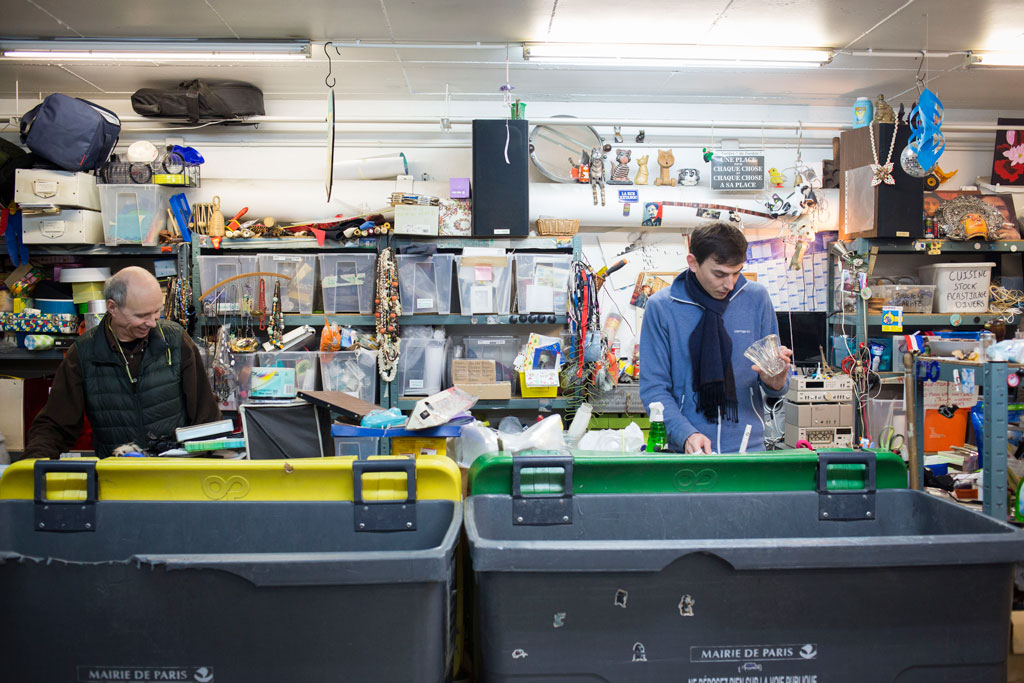
La Petite Rockette by Sophie Pasquet at the Fondation de France
The work La Petite Rockette does is varied: one day, Eddie might be serving in its café, La Trockette, where hipsters sip cheap coffee and share space with homeless people coming in to shelter from the cold and chat with whoever’s behind the counter.
The next, he might work in the basement to sort the tonne of donations the non-profit receives daily, from chandeliers to baby’s clothes. More than 80% of these donations are recycled or repurposed and sold back into the community.
Eddie used to be a squatter, like many of the employees at La Petite Rockette.
He says he’s found his place at the non-profit:
“It was my destiny to come here. I’m surrounded by people who hold me together, who get me…we’re a family. ”
Despite his silver beard, Eddie’s large grey eyes make him look younger than his 39 years. They light up as a man with a long ponytail approaches.
Slinging his arm around Eddie, Dimitri Callens, the head of administration, is giving a tour of La Petite Rockette.
Smiling with some bitterness, Dimitri explains to the visitors that the government cuts represent nothing but “slowly, surely, the extinction of social security in France”.
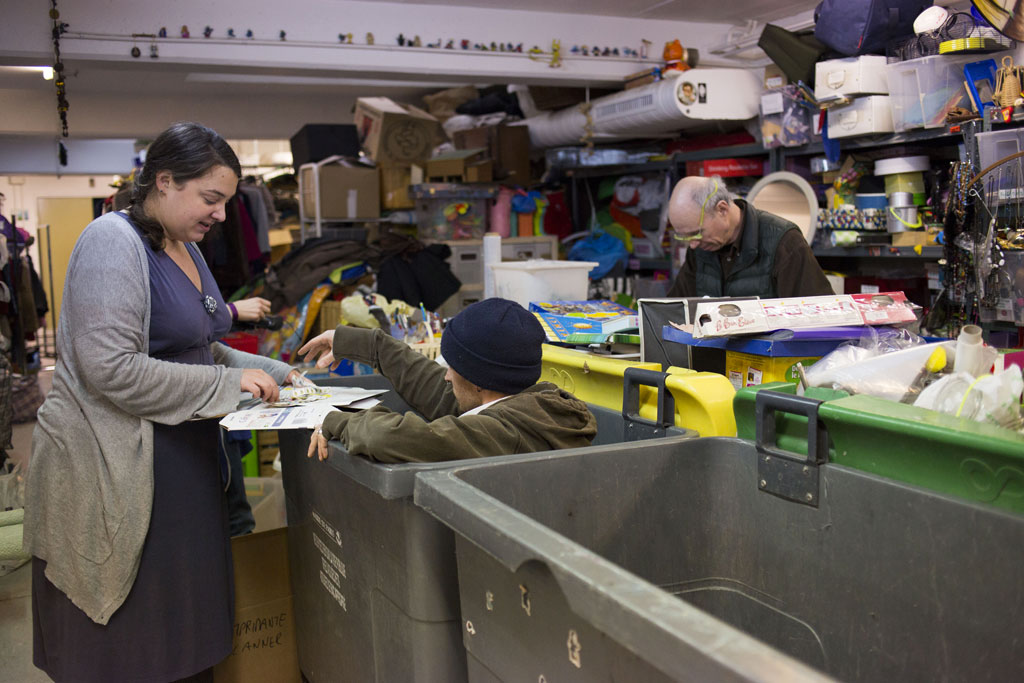
La Petite Rockette by Sophie Pasquet at the Fondation de France
Aided contracts were never meant to be a financial support for the third sector. They were introduced to help vulnerable groups, such as those with disabilities, or young people, enter the world of work.
Employment lawyer and researcher Professor Marie Mercat-Bruns laments the fact that aided contracts have become a “double-edged sword”.
She says that the contracts have actually increased inequality because they are “very temporary. They’re precarious because once they’re over you have nothing.”
Prime Minister Philippe has called the contracts “costly and ineffective”, as the chances of those in aided contracts finding long-term employment have always been minimal.
Mercat-Bruns adds: “Vulnerable groups of people tend to end up in these jobs… so they get stuck under a glass ceiling, with no means of advancement.”
Eddie’s contract ends in May 2018. Under the cuts, it will not be renewed. But he remains upbeat.
When asked where he will go after La Petite Rockette, he cackles: “Hopefully not to prison! ”
Then he shrugs. He always finds something.
Dimitri acknowledges that relying on aided contracts is an unstable and unfair business model. But to him, it is the only way of enabling the public to invest in their own community.
He says: “For us it’s not at all the same thing to spend one euro at a non-profit, which exists for the public, and to spend one euro in the private sector – we’re not against businesses, we’re against a system which forces us to rely on them.”
Some non-profits avoid aided contracts altogether. “We do not support local associations that employ aided contracts,” Solène Ducci, an employee for leading immigration rights non-profit GISTI (Groupe d’information et de soutien des immigrés), professes. “It’s not in our notion of employment law to use low-priced contracts.”
But the not-for-profit sector has to fund itself somehow, and those who don’t rely on aided contracts tend to lean on private donors.
Just over 30% of GISTI’s funding comes from private donors.
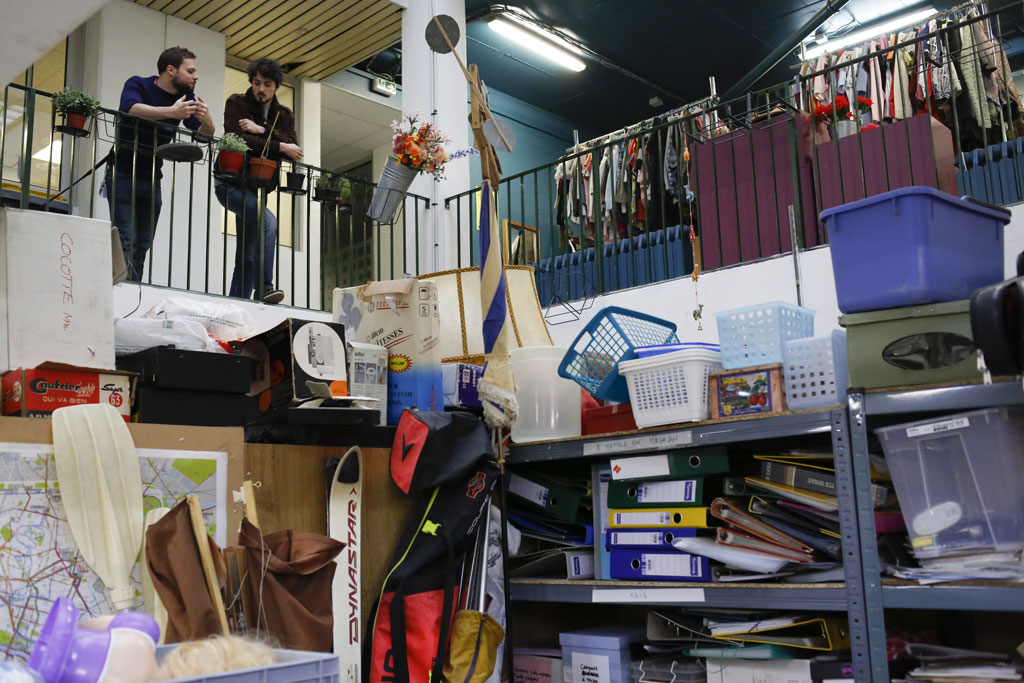
La Petite Rockette by Sophie Pasquet at the Fondation de France
Scribbling across a notebook Dimitri estimates that, with the cuts coming into effect, La Petite Rockette needs to make €300,000 more each year to survive.
He repeats the number like a mantra, staring into a sea of invisible figures: “That’s 300,000 when you sell clothes for a euro, furniture for 15 – so what do you do?”
Eddie appears, sneaks a packet of tobacco from Dimitri’s pocket, then goes outside to smoke. The door handle comes off in his hand. The two men look at each other, and Dimitri continues.
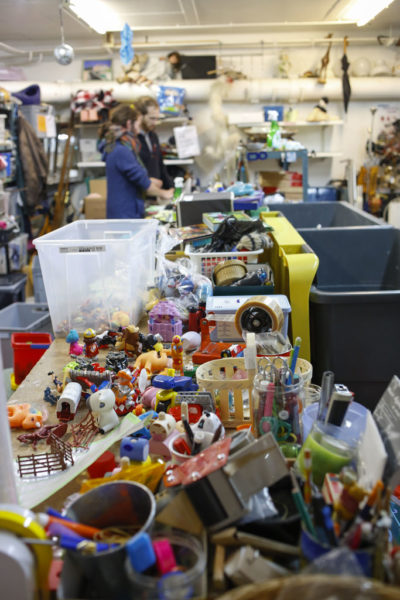
by Sophie Pasquet at the Fondation de France
La Petite Rockette can raise prices, which “goes against the nature of who we are”. And private donors? Dimitri grimaces. They can’t rule anything out.
***
Thanksgiving at La Trockette finds Eddie philosophical about the shifts in French civil society.
Leaning across the bar, he explains: “If tomorrow you found you had nothing, you would be happy to find an organisation like us. And that’s what the people who criticise us have never experienced.”
He stares around the room of people smiling at each other over their beers whilst Bruno, a homeless man who sleeps under the building’s awnings, croons to himself on the piano in the corner.
Eddie sighs, as though in disbelief: “It’s crazy what we accomplished here.”
Images by Sophie Pasquet at the Fondation de France
- For stories like this direct to your inbox each month, subscribe here.
Post-capitalism: Five political books every student must read
What does the EU do, and what relationship can post-Brexit Britain have with it?
